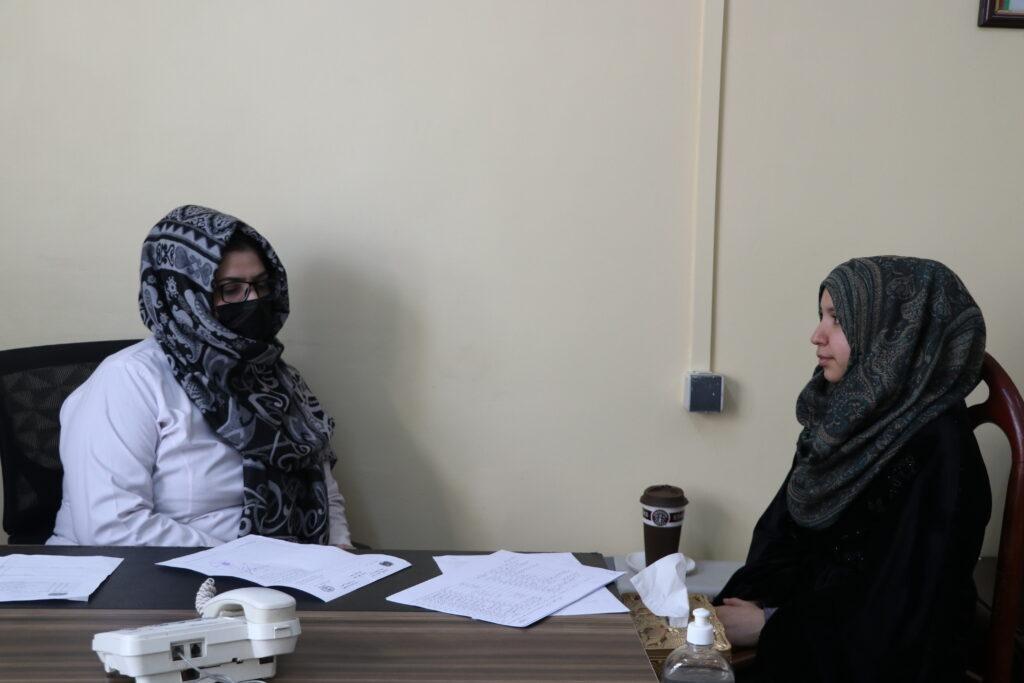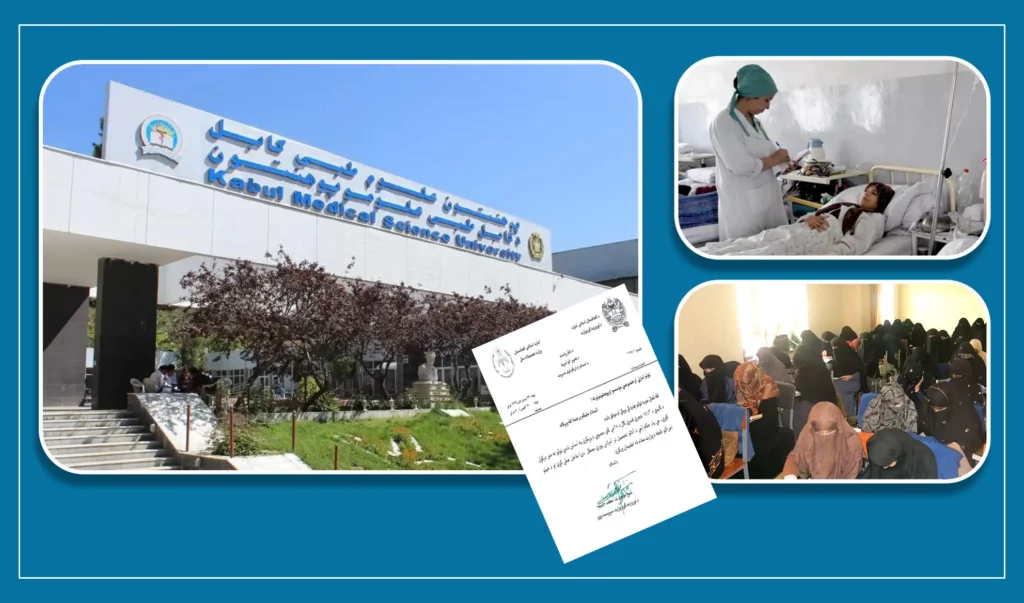KABUL (Pajhwok): A number of doctors and health officials are worried about continued restrictions on higher education for girls, especially in the medical field, calling for the lifting of curbs as soon as possible.
In late 2022, the caretaker government announced suspending girls’ higher education until next notice.
The suspension of girls’ higher education has worried Afghan citizens and the international community. They have repeatedly asked the Islamic Emirate to let girls exercise their rights.
Doctors: Curbs to hit health sector.
Dr. Malalai Rahim Faizi, head of the Malalai Maternity Hospital in Kabul, expressed concern over the continued suspension of girls’ higher education, particularly medical education.

Speaking to Pajhwok Afghan News, she warned a long ban on university education for girls would have a negative impact on the health sector, and the Ministry of Public Health would face a shortage of female doctors in the next few years.
“A student needs to graduate from high school and a medical student train for 20-25 years to be able to treat a patient. If girls don’t go to school and university, we will definitely face a shortage of female doctors and medics,” she explained.
“The doctors available currently cannot provide healthcare services to the entire population of the country, even in Kabul and other provinces.
“If the closure of universities for girls continues, we will eventually face a lack of lady doctors and female medics,” she argued.
Faizi claimed she knew patients who were suffering from mental illness due to the restrictions on their education.
She urged the reopening of secondary schools and universities for girls.
A Kabul-based male doctor, who declined to be named, told Pajhwok regarding the suspension of girls’ education: “While thinking about our daughters, I get very disappointed. Believe me, as a doctor, I’m worried as why girls are barred from education.”
He shared the opinion of Dr Faizi and said continued curbs on girls’ education would have consequences for the health sector.
“We will face a shortage of female healthcare staff in a few years. On the other hand, it is also having a negative effect on the learning of students.
“The suspension of education causes students to forget the lessons they have learnt. Education is like coal, the more you burn it, the fresher it gets. The more a person studies, the higher his/her level becomes.”
He considered the suspension of girls’ education unjustifiable and asked the Islamic Emirate to open schools and universities for them.
Officials on lack of health staff
Dr. Nafisa Sahak, an official of the Ministry of Public Health, told Pajhwok Afghan News: “Currently, we are not facing any shortage of health personnel.”
She confirmed at the moment, they had enough doctors, nurses, and midwives working in the country’s health sector.
But Dr Sahak did voice concern over the suspension of girls’ education. “We will face problems in the future. When the education and training environment is not favorable, the personnel of our health department will slowly retire.
“Some of women are leaving their jobs and the population is still increasing. In order to improve the health system in line with international norms, a greater number of healthcare workers will be needed.”
She added: “If the closure of educational centers for girls continues for a few years, it will lead to a decline in the female health staff strength.”
All citizens are worried about the closure of educational institutions for girls, something that has negatively affected the mental health of girls.
“As a woman, as a member of this society, I want the reopening of schools and universities. I’m optimistic that educational institutions will be reopened,” Sahak remarked.
Sharafat Zaman, spokesman for MoPH, said they were currently facing a shortage of health personnel.
“We have more than 50,000 health personnel, 30 percent of them women. We have hired about 6,000 new medics, including 50 percent females,” he informed.
According to him, there is a need for more personnel in the health sector, because new clinics are being established. To offer better services, he believed, more medics should be hired.
He added: “God willing, we have more than 10,000 medical graduates, as well as midwives and nurses.”
Students also want curbs lifted
Fatima, a 3rd year student at Ghalib University’s Medical Faculty, told Pajhwok: “Believe me, I have been so disappointed since the day the ban was announced on university education for girls, I wish our lessons restart soon.”
Fatima, hailing from Nuristan province, said she had chosen the field of obstetrics and gynecology. After completing her studies, Fatima plans to go to her province to provide health services for women.
Meanwhile, a Kabul Medical University’s girl student, who did not want to be named, expressed concern at the suspension of their lessons.
She said: “I’m a second-year student of the Medical Faculty at the Kabul University… I’m worried about my future due to the closure of educational centers.”
She urged the Ministry of Higher Education to reopen universities for girls as soon as possible.
Official response
Ziaullah Hashimi, spokesman for the MoHE, remarked: “It will be better waiting for the ministry’s next order. Until then, asking too many questions will be a waste of time.”
sa
Visits: 217









GET IN TOUCH
NEWSLETTER
SUGGEST A STORY
PAJHWOK MOBILE APP